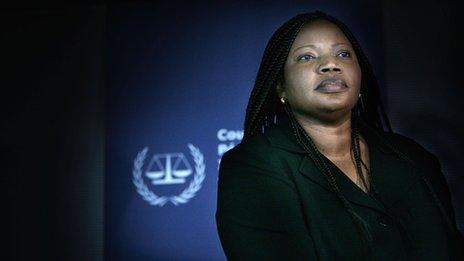Kenya's William Ruto arrives at Hague for ICC trial
- Published
Can there be justice for the Rift Valley? Gabriel Gatehouse reports
Kenya's Deputy President William Ruto has arrived at The Hague to stand trial at the International Criminal Court (ICC) on Tuesday, his lawyer has said.
High-ranking government officials saw off Mr Ruto at the airport in Nairobi.
Mr Ruto and President Uhuru Kenyatta have been charged with crimes against humanity, which they deny.
The ICC said their trials would not clash, after Mr Kenyatta warned that the constitution prevented the two men from being abroad at the same time.
Mr Kenyatta is due to go on trial in November.
Political ploy?
Radio boss Joshua arap Sang has also been charged with inciting and helping co-ordinate attacks.
He will be tried alongside Mr Ruto. He too denies the charges.
The charges against the three stem from violence that broke out after disputed elections in 2007, in which more than 1,000 people were killed and 600,000 forced from their homes.
Mr Kenyatta and Mr Ruto were on opposite sides during the 2007 election and are accused of orchestrating attacks on members of each other's ethnic groups but formed an alliance for elections in March this year.
Analysts say the ICC prosecutions bolstered their campaign as they portrayed it as foreign interference in Kenya's domestic affairs.
The defence and prosecution have been arguing about how the trials of Mr Ruto and Mr Kenyatta should proceed, reports the BBC's Anna Holligan from The Hague.
ICC judges have indicated that their trials would not run simultaneously to avoid "potential confusions", an ICC statement said.
Instead, the trials would take place in alternating periods with minimum block of four weeks exclusively devoted to one case, before passing to another block devoted to the other case, the statement added.
Mr Ruto's lawyer Karim Khan described the prosecution's case as "a lamentable shambles" and "parody of justice".
"What the truth will show... is that there has been a cabal put together that has concocted stories that have been swallowed hook, line and sinker by the prosecution," Mr Khan said, AFP news agency reports.
Chief prosecutor Fatou Bensouda said there had been an "ongoing" and "organised" campaign to intimidate witnesses, it reports.
"Those who are committing these crimes are going to great lengths to cover their identity,'' Ms Bensouda is quoted as saying.
On Saturday, Mr Kenyatta said all camps still accommodating families displaced by the violence would be closed by 20 September, the local Daily Nation newspaper reports.
He issued cheques worth more than $4,500 (£3,000) per family so they could move out of camps and rebuild their lives.
He and Mr Ruto closed some camps in Eldoret and Nakuru in Rift Valley province, which was badly affected by the violence.
The timing of the government handouts and closure of the camps will raise suspicion that it is a political ploy ahead of Mr Ruto's trial, says the BBC's Caroline Karobia in the capital Nairobi.
However, it should be remembered that Mr Kenyatta and Mr Ruto only took office in April and have pledged to help survivors of the violence, she says.
More than 40,000 people are estimated to be still living in the camps.
The two leaders prayed together at a church on Sunday.
"We will work with [the] ICC, and we have always promised to do this," Mr Kenyatta told a rally of supporters.
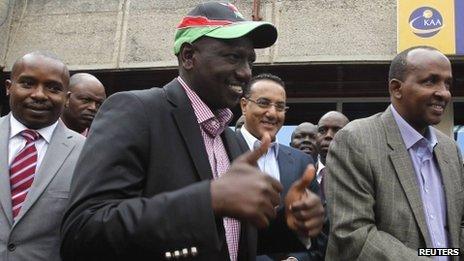
William Ruto, wearing a cap, denies fuelling violence after the 2007 election
"But it must understand that Kenya has a constitution, and Ruto and myself won't be away at the same time."
As government ministers and MPs saw him off at the Jomo Kenyatta Airport in Nairobi on Monday, Mr Ruto said: "Gentlemen, take care of this great nation," the local Daily Nation newspaper reports.
On Thursday, Kenya's parliament passed a motion calling for Kenya to withdraw from the ICC.
The court said the cases would continue, even if Kenya withdrew.
The ICC was set up in 2002 to deal with genocide, crimes against humanity, war crimes and the crime of aggression.
- Published13 September 2022
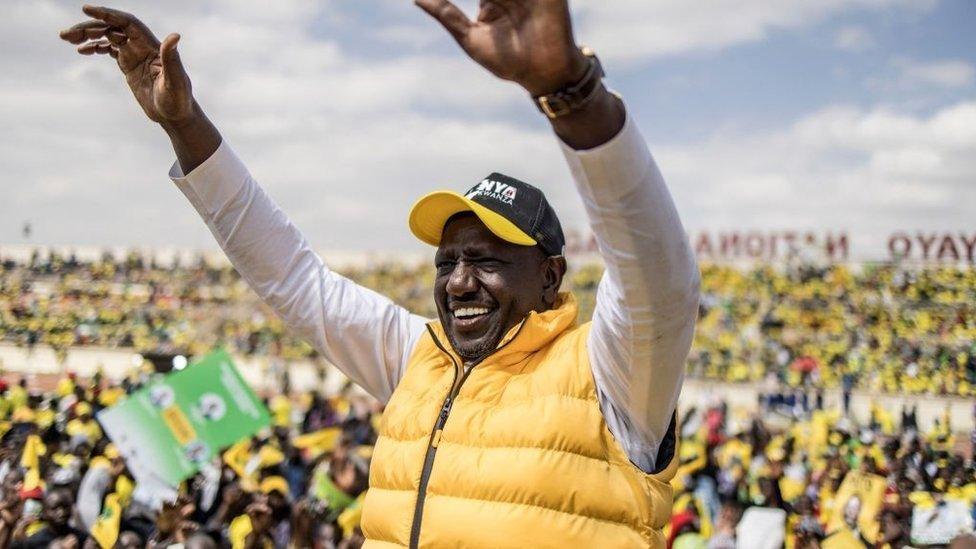
- Published8 February 2013
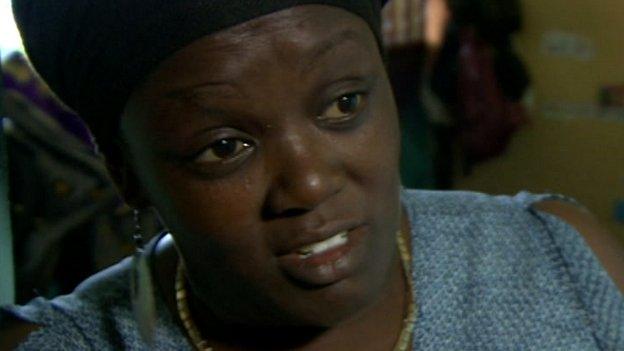
- Published27 May 2013
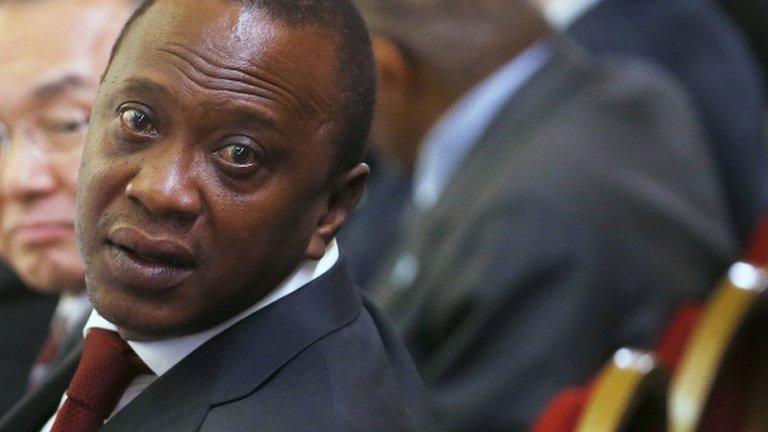
- Published7 January 2015
- Published12 December 2011
